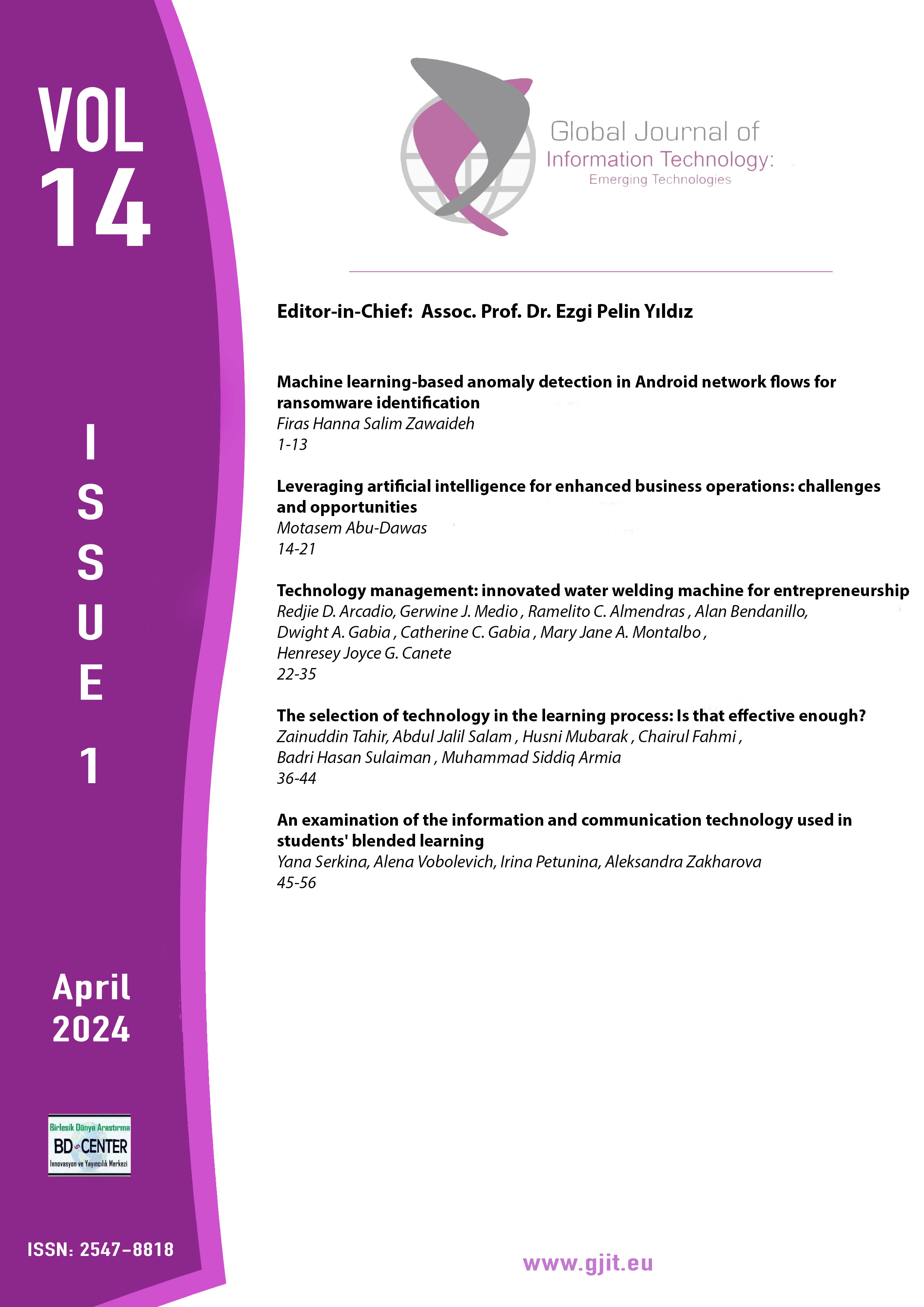An examination of the information and communication technology used in students' blended learning
Main Article Content
Abstract
The purpose of the study was to evaluate the efficacy of information and communication technology-based blended learning for economics students. The case method, statistical experiments, mathematical statistics, comparative analysis, and literature analysis were the research approaches used. The statistical experiment was carried out using a field survey that collected and analyzed the opinions of 236 economics students regarding the introduction of ICT in the classroom. ICT was incorporated in three Russian institutions to create a blended learning environment for economics courses. The suggested approach allowed for the efficient use of ICT for the blended education of economics students, integrating the best aspects of traditional and electronic education, which added practical significance to the results reported in the article. The findings can be used to plan how ICT is taught in economics classes in secondary and postsecondary professional education.
Keywords: Blended learning; digitalization; distance learning; economics; e-learning, information and communication technology.
Downloads
Article Details

This work is licensed under a Creative Commons Attribution-NonCommercial-NoDerivatives 4.0 International License.
Authors who publish with this journal agree to the following terms:- Authors retain copyright and grant the journal right of first publication with the work simultaneously licensed under a Creative Commons Attribution License that allows others to share the work with an acknowledgement of the work's authorship and initial publication in this journal.
- Authors are able to enter into separate, additional contractual arrangements for the non-exclusive distribution of the journal's published version of the work (e.g., post it to an institutional repository or publish it in a book), with an acknowledgement of its initial publication in this journal.
- Authors are permitted and encouraged to post their work online (e.g., in institutional repositories or on their website) prior to and during the submission process, as it can lead to productive exchanges, as well as earlier and greater citation of published work (See The Effect of Open Access).
